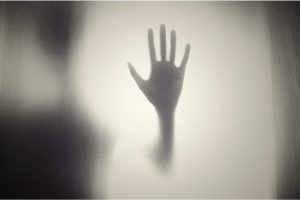For some time now I have wanted to write a series of reflections in response to many questions I have been asked by clients, family, friends and acquaintances about my work, my approach and especially about how I personally face the problems and tragedies to which we are all exposed throughout our lives. Very seldom do we question our own attitude before successes, achievements, or even before moments full of happiness and meaning. However, we do, and very much so, when “things do not go well”, when we fail, when we suffer, when we lose, especially when we lose a loved one.
Perhaps we should learn from the former to apply it to the latter.
Today I am writing these lines because, in spite of being in a moment full of pain, feeling of loss, mourning and certain disorientation, I want to give an answer to the initial question, from my own perspective and approach.
All of us, and not only from Logotherapy, understand that each situation we go through gives us an opportunity to constitute ourselves as human beings and that life, as well as death, are natural processes to which our responsibility is to find the meaning, taking into account the transitory nature of life and that existence is finite. We have no choice before death itself, but, if from Logotherapy I have learned that we have the choice of how we face and confront life, that is to say “the art of good living”, I have also learned through and from Logotherapy how to face and confront life when “things do not go well”, and even death. Viktor Frankl described it this way: “Nothing can be undone and nothing can be remade. I would say that to have been is the surest way of being”.
Meeting points between Logotherapy and Thanatology
Logotherapy (therapy of meaning) and Thanatology (scientific study of the phenomena related to death) are accompaniments, where the central point is to discover the “why…what happened to me” an illness, a death, an accident or other situations of suffering, and to give it a meaning, even under the worst circumstances, as described by Sandra Barbero in her book “Learn to die, and you will learn to live”.
If I think that for me Logotherapy represents “the art of good living”, then Thanatology is the discipline that institutes the “art of good dying”, therefore, its objective is to alleviate or cure the pain of and the fear of death, the hopelessness, the possible existential emptiness of those who are suffering and if necessary, to reconcile with life. Margarita Bravo explains it as follows: “To be able to go through each of these paths Thanatology helps to find that sense to the process of death” and with it to assume the responsibility of life before one’s own death.
From my personal and professional understanding and practice, the main meeting point between Logotherapy and Thanatology lies in making the person responsible before life and death.
I conclude these reflections in two ways. First with two philosophical and “famous” quotations from ancient philosophy,
- “Learn to live and you will know how to die well.” Confucius.
- “One must learn to live all one’s life, and all one’s life one must learn how to die”. Seneca.
and, last but not least, with two quotes that summarize much better than my own words the “encounter” between Logotherapy and Thanatology:
A. “The broadest methodological set of logotherapy is made up of a range of aids, largely philosophical, aimed at modulating the attitude. Logotherapy is a deeply philosophical ideology, and attitude modulation taking up the ancient wisdom that it is not so much our conditions that decide the quality of our life as our attitudes towards these conditions” (Elisabeth Lukas, “Balance and healing through logotherapy”). B. “The best tool is undoubtedly Logotherapy as a method, psychotherapy, system, means, action plan, procedures and philosophy of life, which leads the human being to fulfillment and gives him this wonderful feeling of returning to be who he really is” (Sandra Barbero, “Tools to accompany).
We ourselves are solely responsible for our “art of good living” and “art of good dying” through our physiological, rational, emotional, spiritual and relational balance.
Through knowledge, study, critical thinking, reflection, the abandonment of knowledge bias, unhealthy reductionism, and so many other measures within the reach of almost anyone today.
All you need is awareness, attention, training, evaluation and adequate communication. All being factors within our own responsibility and field of action.
Your results are a direct consequence of your actions and these, in turn, have their origin in your decisions, which are not only conditioned, but also determined by your perspective, which is nothing more than a reflection of what you are aware of.
If you want to delve into this topic and learn more about “the art of good living” and “the art of good dying”, I invite you to click and go straight to the point.
I am aware that you do not have time to spare, so in order not to miss any of the contents (some of them exclusive to the newsletter), as well as participation in a private community of existential dialogue, if you wish, subscribe to the newsletter or have any questions, please feel free to comment below. You can unsubscribe at any time and without any commitment.
If you want to find out more about me, the way to approach my work, or the programs, please do not hesitate to contact me. Thank you very much and see you again soon.







